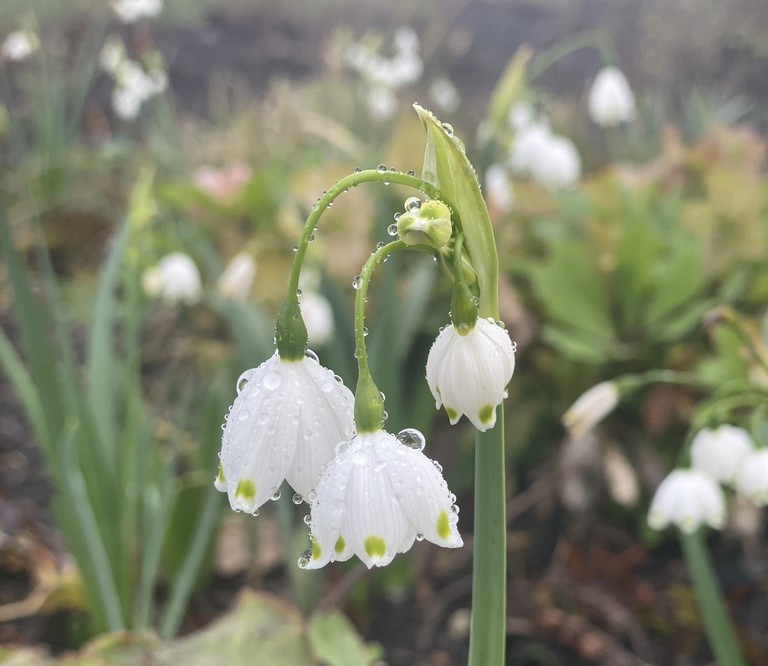
UT Gardens’ March Plant of the Month
Submitted by Andy Pulte, Faculty member, Department of Plant Sciences
Expanding your spring flower bulb palate beyond the basics is a good way to extend your garden’s flower-power and enjoyment in the spring. One bulb I consider underused in Tennessee is Leucojum aestivum (Zone 4-8). Leucojum is a European and Western Asiatic species perfectly suited for our state.
Leucojum is often listed under the common name summer snowflake. This is misleading in our region because it is often in full bloom in mid to late March. This is right in concert with mid to late season daffodils.
White bell-like flowers edged in green sit atop 12-to-14-inch flower stocks that nod downward. Flowering can last a few weeks in the garden, particularly if the weather is mild. Bees flock to the little bells and get to work the minute the first flower opens. Each stem can have as many as six individual blooms.
If you want to add Leucojum to your garden, seek out bulbs from a reputable source and fall plant. If you have a gardening friend who is willing to share some of this wonderful plant, divide clumps and replant in early summer as foliage starts to turn yellow. Plants will continue to go dormant, and you should be rewarded the following spring.
When choosing a location for this plant, think of semi-shady zones or sunny areas with good soil and adequate moisture in the spring. I have grown this in nearly full shade. However, the edges of woodlands where spring light abounds seems the best. All that being said, I would not be overly fussy with placement.
After flowering, allow foliage to remain until it is completely yellow and withered. This will keep plants coming back year after year. Leucojum is deer, rabbit and rodent resistant in the garden because of alkaloids present in the plant. Clumps take a few years to bulk-up, so be patient–the reward will come soon enough.
This plant is featured in the “Tranquility” Hosta Garden at UT Gardens, Knoxville.
The UT Gardens includes plant collections located in Knoxville, Crossville and Jackson, Tennessee. Designated as the official botanical garden for the State of Tennessee, the UT Gardens are part of the UT Institute of Agriculture. The Gardens’ mission is to foster appreciation, education and stewardship of plants through garden displays, educational programs and research trials. The Gardens are open during all seasons and free to the public.